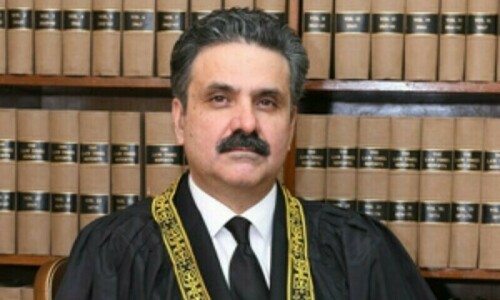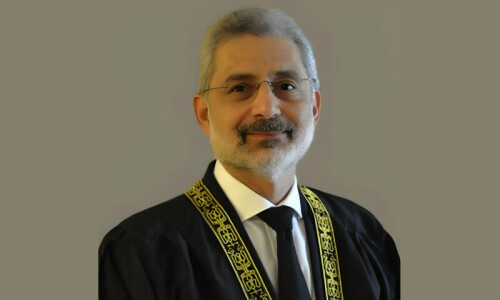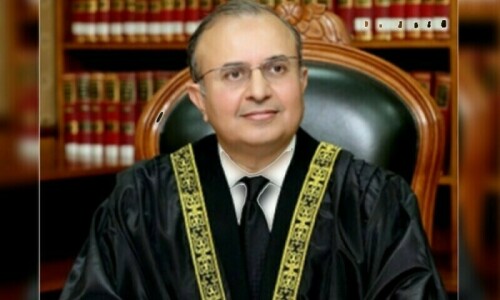THE chorus of voices demanding improvements in the administration of the Supreme Court has only grown stronger with time, yet the honourable chief justice insists on keeping with tradition, much to the frustration of other stakeholders. In doing so, he has become an unmoving obstacle in the way of those who believe a reformation of the country’s top court is well overdue.
To be fair, the other stakeholders within the senior judiciary have also acted in a less-than-ideal manner while pushing him on the proposed reforms, sometimes even appearing coercive while making demands on the de jure custodian of the court.
However, notwithstanding the personal differences within the senior judiciary, the chief justice must understand that what is being demanded of him is neither unreasonable nor unfair.
Proceedings in two of the most important cases heard by the Supreme Court this year have been rendered controversial over issues extraneous to both of them. In the matter of the fixing of dates for the Khyber Pakhtunkhwa and Punjab elections and in the matter of civilian trials by court-martial, the Supreme Court’s ability to dispense justice has been severely compromised because of the divisions within the court over the manner in which it is being run.
The latest in this long-running dispute is a one-page note authored by Justice Yahya Afridi, appended to a recent court order, calling for the formation of a full-court bench to hear the petitions challenging the court martial of civilians. He believes doing so will restore harmony within the court and its integrity and prestige in the eyes of the people.
Justice Afridi has very perceptively warned that the current composition of the bench will invite political controversy, which will weaken the force of whatever decision it takes. He may not be wrong.
Although the Supreme Court’s functioning should not, in ordinary circumstances, be affected by what politicians say, these are clearly not ordinary circumstances. The court and the chief justice have both been under sustained attack over the past few months over a matter that has become their Achilles’ heel — the latter’s discretionary power to form benches.
It is understandable that the chief justice does not wish to relinquish his privileges over some hasty piece of legislation moved by a controversial government, but he must realise that his institution is bleeding its power and prestige the longer he refuses to relent. With just weeks left in his tenure, the chief justice should be planning an amicable transition.
In acceding to his peers’ wishes, the honourable justice still has the opportunity to fortify both his institution and his legacy. He must consider constituting a full-court bench; and, if he does so, the other judges should avoid creating any new controversy and lend him their full and unconditional support.
Published in Dawn, June 29th, 2023















































